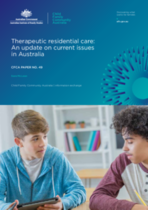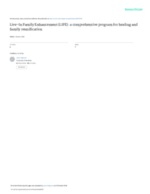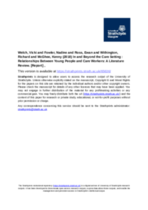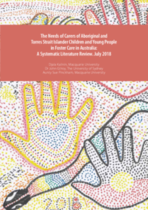Therapeutic residential care: An update on current issues in Australia
This paper provides an update on developments in therapeutic residential care, discusses the implications of these developments, and touches on further issues and dilemmas that should form the focus of research and practitioner partnerships in the future.




